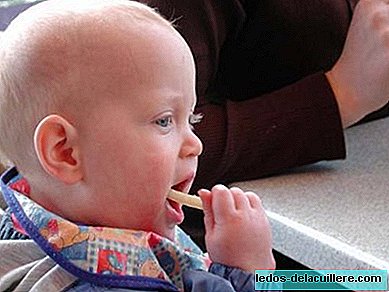
At the beginning of the complementary feeding, after six months, the baby begins to acquire preference for certain foods, so it is very important to take care of the amount of salt they consume. According to a recent investigation, baby's first foods seem to affect her future taste for salt.
The baby's organism is not able to process excess salt and also conditions its long-term health.
According to the study, offering the baby processed foods before six months, such as cereals, bread, cookies and baby pots, which often contain added salt, influences the preference for salty taste.
Two months later, babies were offered a salty drink and water, and they were indifferent or rejected salty liquids, and preferred water. At six months of age, those who had been introduced to starchy regular foods preferred salty liquids to water, while those who had not eaten any starchy foods remained indifferent or rejected salty liquids.
When they reached preschool age, children who had been introduced to regular starchy foods before six months They were more likely to lick salt from food and eat salt alone. However, those who had tried other regular foods, such as fruit, did not have this preference for salt.
Therefore, special care must be taken with the baby's first foods. On the one hand, do not offer them before six months, because your body is still immature to process them. On the other, when appropriate, offer natural foods and do not add any salt in the baby's meals. If you get used to natural foods, this will have an impact on a better quality of life in adulthood.












